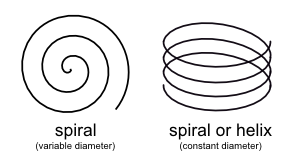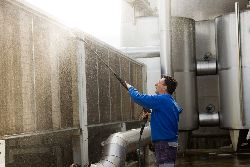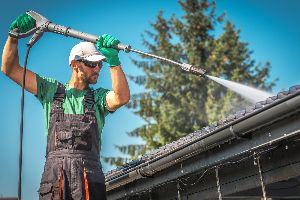Keeping equipment and vehicles clean can be very time-consuming if you aren't using the right equipment. However, when you invest in a commercial pressure washer, you can easily clean the fleet and equipment ensuring a quick and effective cleaning job. Below are several advantages of this purchase.
Why Should You Use a Commercial Pressure Washer for Your Equipment and Fleet?
1. Major Jobs Done Efficiently
Running large equipment down to your vehicle getting you to and from your job site can come with problems. Hoses blowing causing oil spray, transmission fluid leaking and causing issues, down to dirt and debris getting stuck where it can cause problems. These are all common issues that make having a commercial pressure washer an easy investment.
2. Set up Options
On-site wash bays are convenient for large operations, however not always an option for all. Trailer units, 2 wheel, or 4 wheel units are a convenient option for any cleaning operation. Gas engine or electric will be a consideration to make as well. Gas engine is ideal for a mobile unit, but they can be much louder and heavier to move. Electric is ideal for a cleaning operation that doesn’t need to be mobile far from an electrical source. Several options are available for wash bays as well, with stationary units on an elevated stand or trolley systems to keep hoses off the ground and longer lasting. Customizing options are available for all pressure washer units.
3. Make a Strong Impression
Your equipment and fleet are rolling advertisements for your business, so they should always look clean and professional. Having your own pressure washer makes it easier to keep up with maintenance. Washing equipment and fleet as needed with the ability to clean up any major messes as they occur is a major advantage to keeping your operation running smooth. Biggest advantage: Looking good while getting dirty at the next job site.
When you need a commercial pressure washer, contact Express Pressure Washers Inc. in Blooming Prairie, MN. Since 1984, they have been providing some of the best equipment on the market to businesses throughout the region. Whether you have small or large equipment, vehicle or a fleet of many trucks, they’ll help you keep them looking good. Visit the website for more information about their inventory, and call (507) 583-2703 to discuss your options with a team member.













